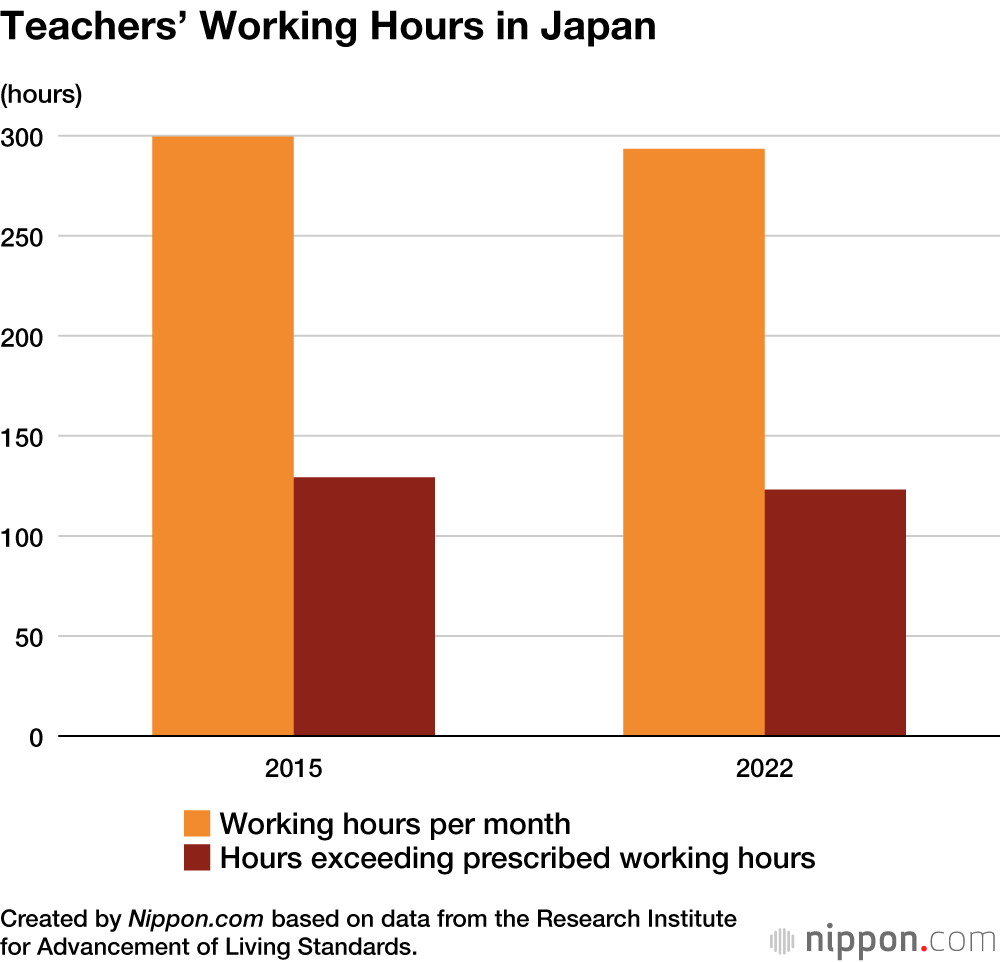
Extreme Overtime Takes a Toll on Japan’s Teachers
Society Work Education- English
- 日本語
- 简体字
- 繁體字
- Français
- Español
- العربية
- Русский
There has been little improvement in the situation for Japan’s overworked elementary, junior high, and high-school teachers, who are kept busy on holidays for tasks that include coaching students’ club activities. A survey of 10,010 teachers was conducted in June by the Research Institute for Advancement of Living Standards, with a valid response rate of 92.1%.
The results show that the average time spent at school on a working day was 11 hours, 21 minutes. Although this is eight minutes less than the average of 11 hours, 29 minutes in the previous survey (2015), it remains high. Furthermore, if time spent working from home is added, the average increases to 12 hours, 7 minutes, which exceeds the prescribed working day (7 hours, 45 minutes) by more than four hours.
The survey also found that teachers work an average of 3 hours, 24 minutes on weekends due to their responsibilities related to club activities and other tasks. Adding up all of the hours for the month results in 293 hours, 46 minutes. This average is 6 minutes less than that of the previous survey, but still exceeds the prescribed working hours by 123 hours, 16 minutes. The Industrial Safety and Health Act defines the “karōshi line” as working more than 100 hours of overtime in the month before the onset of a health problem. In other words, many teachers are in a dangerous situation that could seriously damage their health.
When asked what should be done to improve the working situation, many survey respondents said that there needed to be changes to how tasks were divided through such measures as outsourcing supervision of children’s journeys to and from school and collection of fees. They also called for fewer school meetings, and the most popular request from the national and local governments was to assign more teachers. When asked about the workload associated with the revision of the Course of Study in Japan, elementary and junior high teachers pointed to the time needed for class preparation and grading for courses on foreign languages or ethics, while high school teachers mentioned the work related to introducing classes on citizenship and personal finance.
When asked whether they would recommend teaching as a career path, 57.6% of respondents said “No.” The most common reasons were the heavy workload, long working hours, and intense mental stress.
(Translated from Japanese. Banner image © Pixta.)
